When the Heart Feels Heavy
Oct 29, 2025
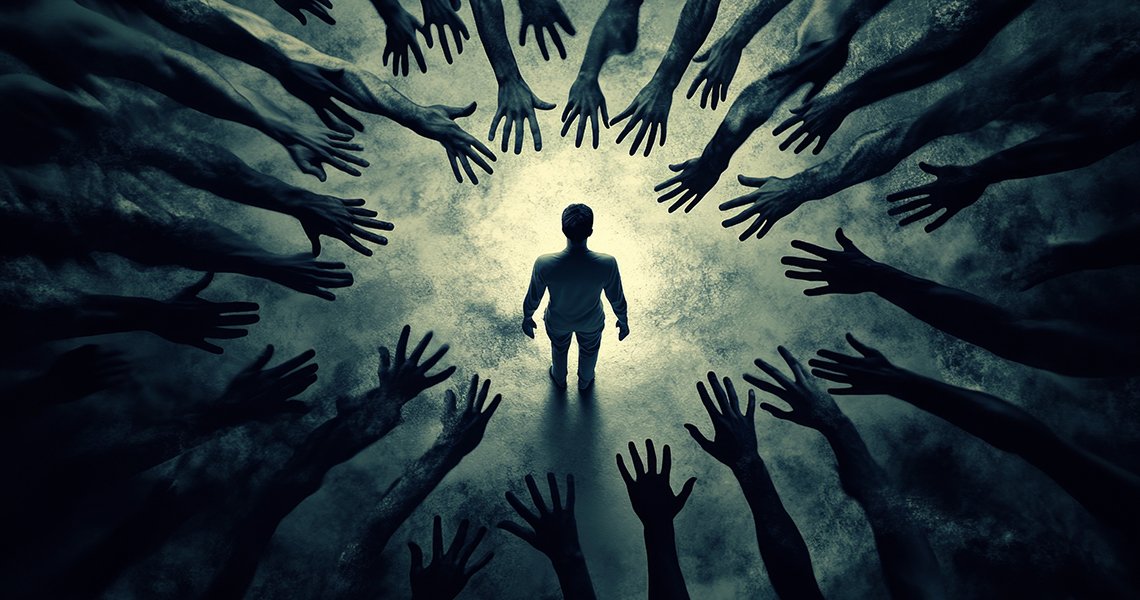
In a world where injustice often seems to rear its ugly head, Islam stands as a beacon of hope, advocating for justice and the unequivocal prohibition of oppression. The religion’s scriptures, the Holy Quran and the Hadith Books, are replete with verses and teachings that call upon the faithful to live a life of fairness and equity. This blog delves into these Islamic teachings that denounce tyranny (Zulm) in all forms. Let’s uncover the Islamic perspective on the condemnation of oppression.

Oppression isn’t just a religious or spiritual concept, it’s a global reality that every civilised society, court of law, and moral philosophy has attempted to define, prevent, and punish.
At its core, oppression refers to the unjust or cruel exercise of authority or power, often sustained through social, political, or institutional mechanisms. It’s when one group, or individual, inflicts harm, restriction, or exploitation on another without just cause.
The Oxford English Dictionary defines oppression as:
“Prolonged cruel or unjust treatment or control.”
But this isn’t just a dictionary term, it’s a lived experience for millions across the globe, whether due to race, religion, class, gender, or political beliefs.
International bodies like the United Nations and International Criminal Court (ICC) categorize oppression under serious human rights violations.
Oppression violates this equality.
Such acts aren’t just immoral, they are internationally prosecutable.
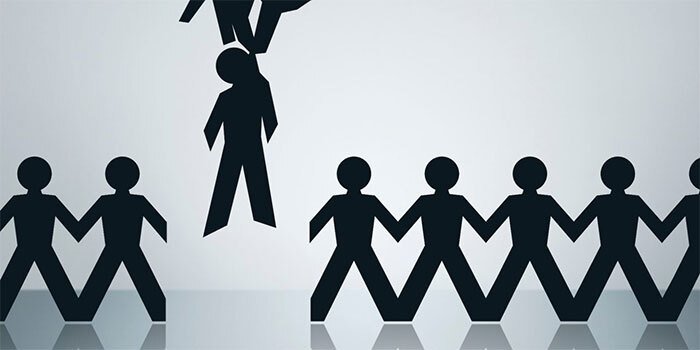
1. Plato (Republic):
“The heaviest penalty for declining to rule is to be ruled by someone inferior to yourself.”
Plato believed oppression arises when just individuals withdraw, and unjust people seize power.
2. John Stuart Mill (On Liberty):
“The worth of a state in the long run is the worth of the individuals composing it.”
Mill argued that any power limiting individual freedom without necessity was oppressive.
3. Immanuel Kant:
“Act only according to that maxim whereby you can… will that it should become a universal law.”
Kant condemned oppressive actions as they violate the principle of universal human dignity.
4. Karl Marx:
“The history of all hitherto existing society is the history of class struggles.”
He identified oppression as systemic, rooted in economic inequalities and capitalist exploitation.

Before examining the specific scriptures, it is crucial to comprehend what Islam considers oppression (Zulm). Islamic scholars have given many meanings to this word, but the most concise and comprehensive definition was given by Imam Ibn Taymiyyah, who states:
الظلم وضع الشيء في غير موضعه
Zulm (Oppression) is to put something where it doesn’t belong. (Jami ul Msail by Ibn-e-Taymiyyah: 6/245)
This definition declares opperssion as treating others unfairly, behaving immorally, abusing verbally, beating, and engaging in any activity that is forbidden by Islam.
The opposite of oppression is justice. Meaning that if someone is doing justice indeed he is avoiding from oppression, and if someone is doing oppression, he is not doing justice. Therefore whenever and wherever Allah Almighty has ordered to do justice, it means to refrain from injustice and oppression. And wherever He has forbidden doing oppression and injustice, it means to start doing justice.
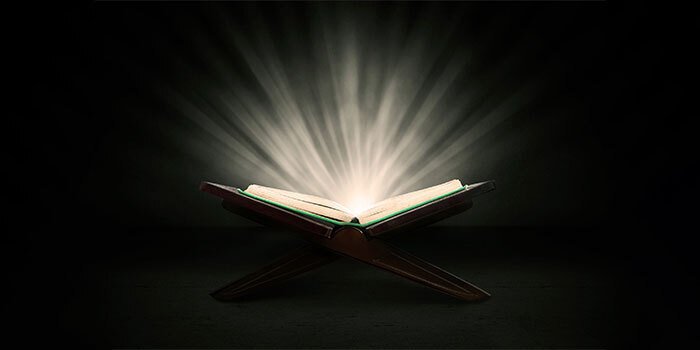
The Holy Quran openly condemns injustice and commands the adoption of justice and fairness. Allah Almighty has described injustice in the Holy Quran from many aspects, some of which are described belo
يَا أَيُّهَا الَّذِينَ آمَنُوا كُونُوا قَوَّامِينَ بِالْقِسْطِ شُهَدَاءَ لِلَّهِ وَلَوْ عَلَى أَنْفُسِكُمْ أَوِ الْوَالِدَيْنِ وَالْأَقْرَبِينَ إِنْ يَكُنْ غَنِيًّا أَوْ فَقِيرًا فَاللَّهُ أَوْلَى بِهِمَا فَلَا تَتَّبِعُوا الْهَوَى أَنْ تَعْدِلُوا وَإِنْ تَلْوُوا أَوْ تُعْرِضُوا فَإِنَّ اللَّهَ كَانَ بِمَا تَعْمَلُونَ خَبِيرًا
O you who have believed, be persistently standing firm in justice, witnesses for Allah, even if it be against yourselves or parents and relatives. Whether one is rich or poor, Allah is more worthy of both. So follow not [personal] inclination, lest you not be just. And if you distort [your testimony] or refuse [to give it], then indeed Allah is ever, with what you do, Acquainted. (Surah An’Nisa:135)
This verse is a cornerstone in the Quran’s advocacy for justice. It unequivocally demands the pursuit of justice, regardless of the personal cost. The emphasis placed on adopting justice in the verse means that injustice has been condemned in strong terms.
وَسَيَعْلَمُ الَّذِينَ ظَلَمُوا أَيَّ مُنْقَلَبٍ يَنْقَلِبُونَ
And those who have wronged are going to know to what [kind of] return they will be returned. (Surah Ash-Shuara:227)
In this verse, the oppressors are warned to desist from oppression by warning them of the severest punishment in the Hereafter for their oppression, for on the Day of Judgment, a great scale will be set up where everything will be accounted for, and as a punishment for their oppression, they will be subjected to severe punishment.
وَإِذَا تَوَلَّى سَعَى فِي الْأَرْضِ لِيُفْسِدَ فِيهَا وَيُهْلِكَ الْحَرْثَ وَالنَّسْلَ وَاللَّهُ لَا يُحِبُّ الْفَسَادَ
And when he goes away, he strives throughout the land to cause corruption therein and destroy crops and animals. And Allah does not like corruption.(Surah Al-Baqrah:205)
The verse mentions a person who, after gaining power in the world, commits injustice and causes mischief. While committing this evil act, his soul is deeply entangled in sins and he does not feel remorse or shame for his injustice.
يَا أَيُّهَا الَّذِينَ آمَنُوا لَا يَسْخَرْ قَوْمٌ مِنْ قَوْمٍ عَسَى أَنْ يَكُونُوا خَيْرًا مِنْهُمْ وَلَا نِسَاءٌ مِنْ نِسَاءٍ عَسَى أَنْ يَكُنَّ خَيْرًا مِنْهُنَّ وَلَا تَلْمِزُوا أَنْفُسَكُمْ وَلَا تَنَابَزُوا بِالْأَلْقَابِ بِئْسَ الِاسْمُ الْفُسُوقُ بَعْدَ الْإِيمَانِ وَمَنْ لَمْ يَتُبْ فَأُولَئِكَ هُمُ الظَّالِمُونَ
O you who have believed, let not a people ridicule [another] people; perhaps they may be better than them; nor let women ridicule [other] women; perhaps they may be better than them. And do not insult one another and do not call each other by [offensive] nicknames. Wretched is the name of disobedience after [one’s] faith. And whoever does not repent – then it is those who are the wrongdoers. (Surah Al-Hujurat: 11)
This verse warns against mockery and slander, which are forms of psychological oppression, advocating for respect and dignity among all people.
Each of these verses anchors the believer in a moral landscape where oppression is more than a social ill; it’s a spiritual deviation that corrupts the heart and society.

It should be remembered that for any society, oppression is more dangerous than disbelief because oppression destroys societies. That is why the Messenger of Allah PBUH has declared it forbidden and has commanded that people should live their lives by being free from oppression and injustice and by adhering to justice. The Prophet Muhammad PBUH said in a hadith Qudsi in which Allah Almighty says to his slaved:
يَا عِبَادِي إِنِّي حَرَّمْتُ الظُّلْمَ عَلَى نَفْسِي، وَجَعَلْتُهُ بَيْنَكُمْ مُحَرَّمًا، فَلَا تَظَالَمُوا
O My servants, I have forbidden oppression for Myself and have made it forbidden amongst you, so do not oppress one another. (Sahih Muslim:2577)
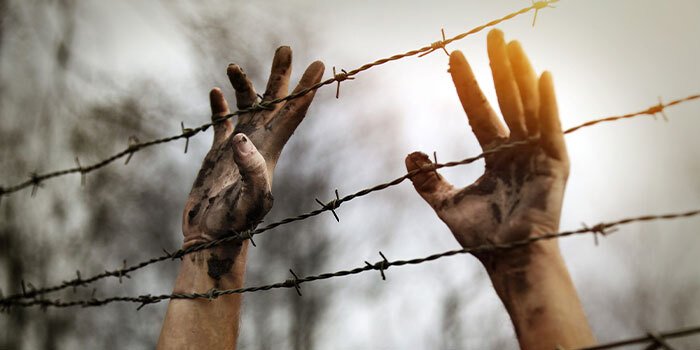
Man continues with his material power to oppress others and forgets that one day the punishment of Allah Almighty may come. He remains engrossed in his worldly deeds that Allah’s grip begins as The Prophet Muhammad (PBUH) said,
إِنَّ اللَّهَ لَيُمْلِي لِلظَّالِمِ حَتَّى إِذَا أَخَذَهُ لَمْ يُفْلِتْهُ
Allah gives respite to the oppressor. But when He seizes him, He does not let him escape. (Sahih Bukhari: 4686)
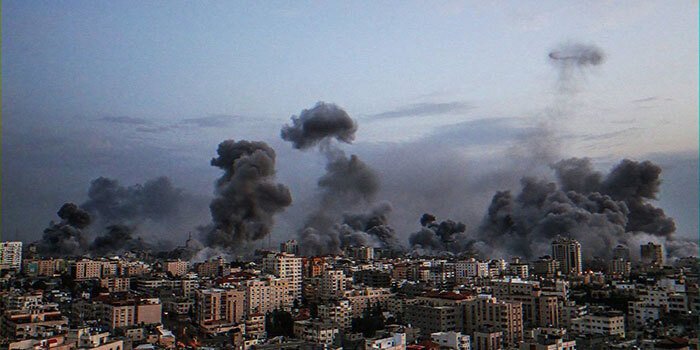
It is the responsibility of a Muslim to try to reform other Muslims and protect them from the oppression of others, as well as to prevent them from oppressing others. The Prophet PBUH said:
Help your brother, whether he is an oppressor or he is an oppressed one. People asked, ‘It is all right to help him if he is oppressed, but how should we help him if he is an oppressor?’ The Prophet said, ‘By preventing him from oppressing others. (Sahih Bukhari:2444)
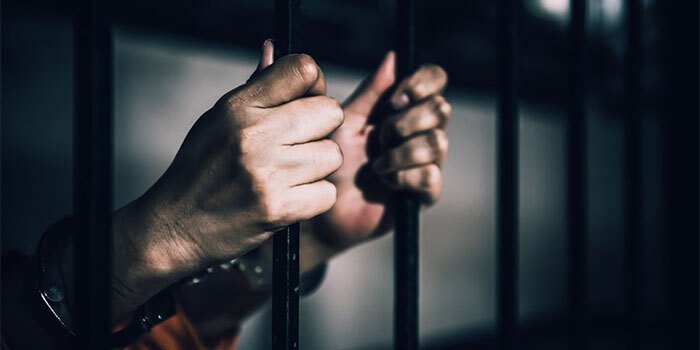
The honor of a Muslim is very precious in the sight of Allah Almighty. In fact, the Messenger of Allah (ﷺ) said that the honor of a believer in the sight of Allah Almighty is greater than the Kaaba in Makkah. Injustice against the honor, wealth or property of a believer would be the greatest injustice in the world, which is why the Messenger of Allah PBUH forbade it. He PBUH said:
فَإِنَّ دِمَاءَكُمْ، وَأَمْوَالَكُمْ، وَأَعْرَاضَكُمْ، بَيْنَكُمْ حَرَامٌ، كَحُرْمَةِ يَوْمِكُمْ هَذَا، فِي شَهْرِكُمْ هَذَا، فِي بَلَدِكُمْ هَذَا
Your blood, your properties, your honor are sacred to one another, as sacred as this day of yours in this month of yours in this city of yours. (Sahih Bukhari:67)
These Hadiths highlight that oppression not only harms the oppressed but also damages the oppressor, who, encumbered by injustices committed, faces the inevitability of divine justice. These teachings also emphasize the responsibility of the community to protect and uphold the rights of all individuals, illustrating a comprehensive Islamic approach to social justice and the eradication of oppression.
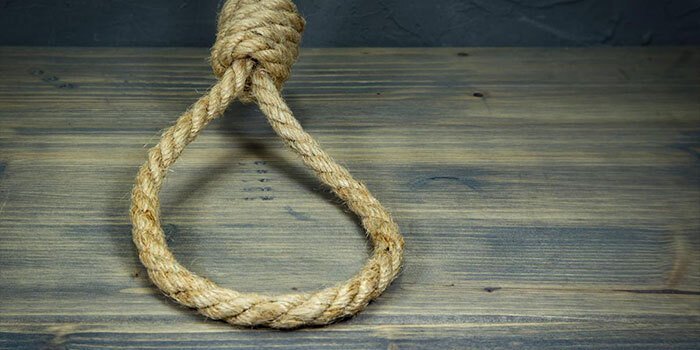
One of the names of Allah is “Adil” which means the best justice. But Allah has a different way of doing everything. He does not oppress anyone, but forgives many of His rights to people. Indeed, Allah Himself has said that My mercy prevails over My anger. That is why He has repeatedly said about Himself in the Quran that I am the Forgiving and the Most Merciful.
Now the question is whether Allah Almighty will forgive the oppressors. So, it should be remembered that Allah Almighty is the one who does justice and equity in this world and the Hereafter, and He will never forgive the oppressors. Allah knows every oppressor in the world as he said in the holy Quran:
وَلَا تَحْسَبَنَّ اللَّهَ غَافِلًا عَمَّا يَعْمَلُ الظَّالِمُونَ
And never think that Allah is unaware of what the wrongdoers do. (Surah Ibrahim:42)
Allah Almighty gives great importance to the supplication of a person who is oppressed. It is immediately accepted and the punishment of the oppressor begins. The Messenger of Allah PBUH said:
Be afraid, from the curse of the oppressed as there is no screen between his invocation and Allah. (Sahih Bukhari:2448)
Allah Almighty initially punishes the wrongdoers with a small punishment so that they may learn a lesson and stop their wrongdoing. But when they do not stop their wrongdoing despite being punished, Allah Almighty then gives them some more time so that they increase in wrongdoing and their punishment becomes severe. Allah almighty says in the Holy Quran:
إِنَّمَا يُؤَخِّرُهُمْ لِيَوْمٍ تَشْخَصُ فِيهِ الْأَبْصَارُ
He only delays them for a Day when eyes will stare [in horror]. (Surah Ibrahim:42)
There are some injustices for which Allah Almighty has decreed a punishment in this world, such that as soon as someone commits this injustice, the Islamic government will punish them accordingly. Such as the punishment for killing a Muslim, the punishment for cutting off any part of a Muslim’s body, the punishment for robbing a Muslim’s property and the punishment for theft, etc. all these punishments have been described in Islam and ordered to Islamic government to punish whoever does these sins.

Islam does not permit individuals to incite rebellion, create chaos, go for disharmony and anarchy or rise against a government based solely on personal grievances. Maintaining social order is a foundational principle in Islam, and believers are taught to be patient, steadfast, and to place their trust in the governing authority, for the overall stability and welfare of society.
However, this does not mean Islam condones injustice.
When an oppressor escapes from punishment in this world, whether due to a lack of evidence, power dynamics, or the absence of an Islamic system of governance, Islam assures believers that no injustice will go unanswered. Allah, in His infinite justice, has promised to hold every oppressor accountable on the Day of Judgment, without exception or favoritism.
The Qur’an is replete with verses where Allah warns tyrants, unjust rulers, and those who transgress against others. From Pharaoh to the nations destroyed before, the fate of oppressors serves as a divine reminder that temporary power does not protect anyone from eternal justice.
In short:
Silence from the courts of this world does not mean silence in the court of the Hereafter.
Allah says in the Holy Quran:
The Prophet Muhammad PBUH said that:
Whoever has oppressed another person concerning his reputation or anything else, he should beg him to forgive him before the Day of Resurrection when there will be no money (to compensate for wrong deeds), but if he has good deeds, those good deeds will be taken from him according to his oppression which he has done, and if he has no good deeds, the sins of the oppressed person will be loaded on him. (Sahih Bukhari:2449)
The above Quranic verses and hadith explain that on the Day of Judgment, Allah Almighty will punish the oppressors for their injustice, exercising complete justice and fairness. And the oppressed will be given their full rights.

We can simply define oppression as doing injustice to someone. Allah Almighty Himself is the one who does justice and equity and He strongly dislikes oppression (injustice). That is why Allah has strongly condemned oppression at various places in the Holy Quran and has warned of severe punishment for the oppressors in the Hereafter.
Oppression is also socially unacceptable because societies of disbelief and polytheism can function, but societies of oppression quickly fall victim to destruction and ruin. That is why Islam has strongly condemned oppression and advised all people to avoid this evil act.